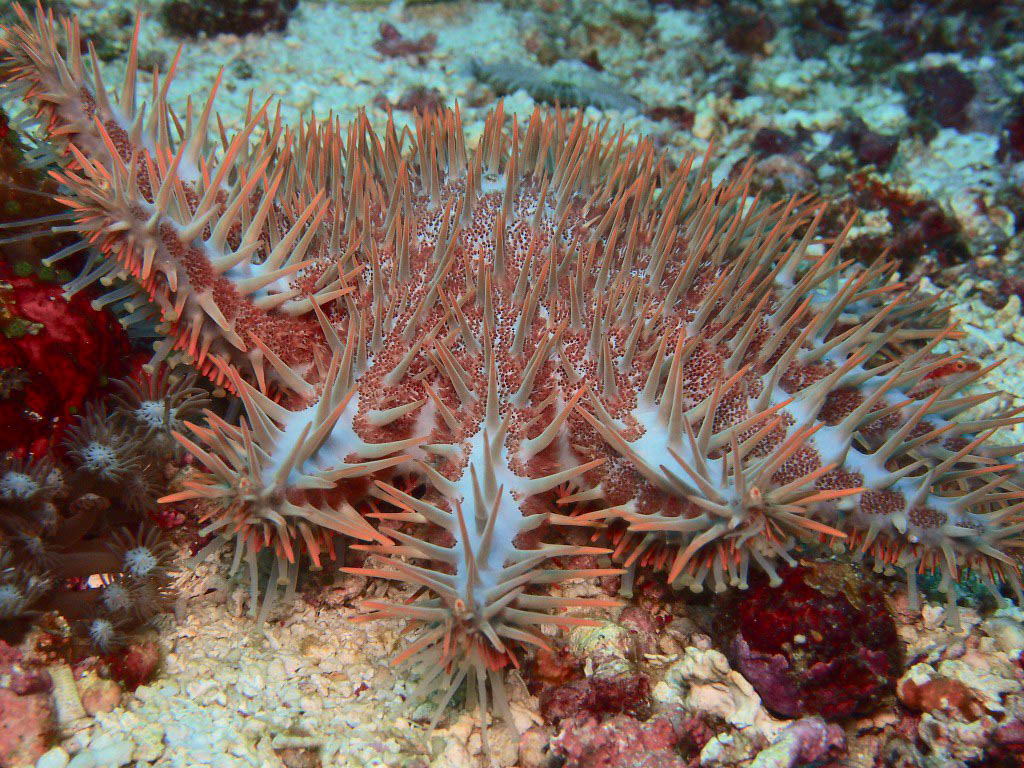New guidance helping marine tourism operators conduct Crown-of-Thorns sea star (COTS) cleanups in an environmentally friendly way
The Reef-World Foundation – the international coordinator of the UN Environment Programme’s Green Fins initiative – has launched new guidelines to help dive and snorkel operators assess when to conduct Crown-of-Thorns sea star (COTS) cleanups and how to do so in an environmentally friendly way.
The guidelines give some basic ecological information about Crown-of-Thorns sea stars (Acanthaster planci) to help marine tourism operators learn more about the species and how they’re different to other sea stars. The guidance also gives an overview of the role they play in a balanced ecosystem, why outbreaks occur, what signs indicate a COTS outbreak is happening on your reef and when and what steps you may need to take to protect your reef. For operators facing a COTS outbreak and are organising a cleanup, this document also includes tips to help ensure no further damage is caused to marine ecosystems in the techniques outlined.
Although a known coral predator, COTS’ natural role helps maintain coral diversity in a balanced ecosystem. This is because, by eating the faster growing coral species like Acropora, they allow different, slower growing corals to grow and create colonies, forming a diverse reef. However, frequent or persistent COTS outbreaks can exceed coral recovery rates causing extensive damage.
Samantha Craven, Programmes Manager at Reef-World, said: “Over the years, we’ve heard from Green Fins members who are facing COTS outbreaks and need support in dealing with the issue without inadvertently having a negative impact on coral reefs. That’s why we’ve created these Green Fins Crown-of-Thorns sea star cleanup guidelines, which summarise existing scientific guidance into one handy resource. The comprehensive resource can be used to ensure you and your team know when to act and are protecting marine habitats by following environmental best practice when dealing with an outbreak situation. We hope they’re useful to our network of Green Fins members and non-members alike.”
Gabriel Grimsditch, marine ecosystems expert at the UN Environment Programme, said: “COTS are well known to divers as a threat to corals, but they are also a natural part of a reef system. Keeping fast-growing corals in check allows space for the high diversity we are used to seeing, and COTS cleanups are not always recommended. The Green Fins Crown-of-Thorns Sea Star Cleanup Guidelines will help marine tourism operators gauge when a cleanup is really needed, and adapts information on conducting cleanups from COTS experts and reef management organisations specifically for the diving industry.”
The guidelines are available free of charge and can be downloaded here.







